#melissabenoist
Text
Melissa as Sadie in The Girls On The Bus 1x08💙









#melissa benoist#melissabenoist#sadie mccarthy#the girls on the bus#tgotb#supergirl#kara danvers#kara zor el#supercorp#marley rose
38 notes
·
View notes
Text



Melissa Benoist | "The Girls on the Bus" Press Junket
Via IG Melissa
#2024#melissa benoist#melissabenoist#photohoot#girlsonthebus#the girls on the bus#by ahome#ig2024#instagram#IG
224 notes
·
View notes
Text
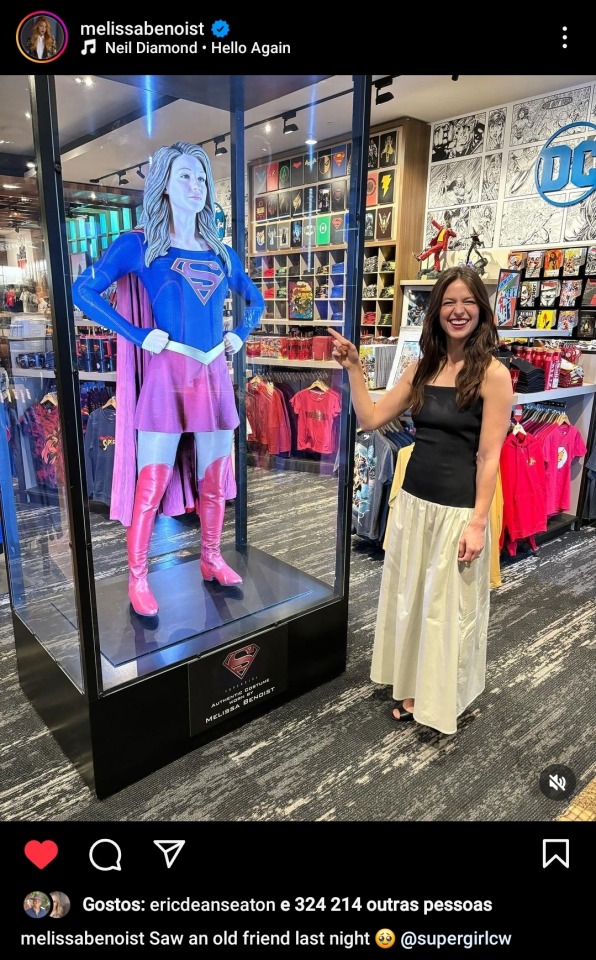
#supergirl#melissa benoist#melissabenoist#kara#kara danvers#supercorp#kara x lena#kara lena#i missed her
144 notes
·
View notes
Text
DC Couples for Valentine's Day: Supercorp

#supercorp#supergirl#karazorel#lena luthor#superman#comicbooks#comics#dc comics#couples#love#lgbt#dcpride#illustration#digital drawing#artwork#drawing#fanart#melissabenoist#dctv#arrowverse
549 notes
·
View notes
Text

Oliver Queen's green arrow... yes, that's what it is... yes..
#arrow#badge#barryallen#batman#blackcanary#dc#dccomics#dcuniverse#flash#greenarrow#justiceleague#logo#sign#supergirl#superman#symbol#theflash#oliverqueen#laurellance#grantgustin#melissabenoist#stephenamell#cwarrow#felicitysmoak#saralance#arrowverse#legendsoftomorrow#arrowseason#pyrography#woodburning
11 notes
·
View notes
Text
Can we all just spontaneously start rewatching supergirl again and once we’re done with each episode we all just post about that Supercorp scene from that episode so we can all talk about it as if we’re watching it for the first time. Cause idk about you but I miss when we all as a fandom would get so exited when kara and Lena had any sort of interaction in the show.
81 notes
·
View notes
Text




Another fic prompt I posted on insta a few days ago cause cheesy is my default mode. :3
#supercorp#supergirl#lena luthor#kara danvers#katie mcgrath#alex danvers#meltie#kara zor el#melissa benoist#melissabenoist#otp#instagram#karadorkable#supercorp endgame#luvers
190 notes
·
View notes
Text
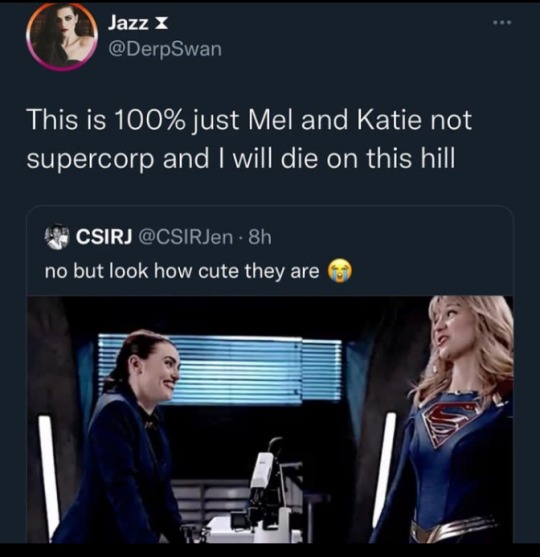
Katie and Mel 💙❤️ good vibes
#dc#dc comics#cw#cw supergirl#supergirl#kara danvers#lena luthor#katie mcgrath#KatieMcGrath#melissa benoist#MelissaBenoist#supergirl cast
95 notes
·
View notes
Photo

It's been a while I've done a proper Kara the Castratrix caption.
If Valerie Solanas had superpowers and she hung out with Kara and other men-hating kickass women of DC universe.
Name references are meant to be understood only by the biggest geeks out there. If you did, congratulations. It may be you don't have a life.
#supergirl#supergirlcw#melissa benoist#melissabenoist#dc#DC comics#dceu#dc extended universe#dcmultiverse#faora#faora ul#maxima#medula#valerie solanas#Chaste Fantasies originals
13 notes
·
View notes
Photo






If The Flash movie was released on The CW.
#theflash#the flash#thecw#the cw tv series#the cw#the cwverse#arrowverse#grantgustin#grant gustin#dc#dctv#supergirl#melissabenoist#melissa benoist
9 notes
·
View notes
Text
And sharing probably one of my best edits, that I made for Women's International Day featuring two of my OCs (Annabeth and Hemera) and some of Wattpad friends' OCs as well. Needless to say I'm extremely proud of this one as it took me several hours
#hemera#chloebennet#Annabeth#melissabenoist#emilia clarke#jade thirlwall#emily vancamp#keke palmer#keira knightley#women's international day#sydney sweeney
4 notes
·
View notes
Text
Melissa said she really didn’t have time to train her arms and shoulders during supergirl and then her arms are like that!





#kara danvers#lena luthor#supergirl#kara zor el#supercorp#melissa benoist#katie mcgrath#kara and lena#karlena#katiemcgrath#melissabenoist
2K notes
·
View notes
Text
Melissa Benoist behind the scene | "The Girls on the Bus" Press Junket
Via IG David Stanwell
#2024#melissa benoist#melissabenoist#melbenoist#the girls on the bus#girlsonthebus#girls on the bus#by ahome
197 notes
·
View notes
Text







Press tour for Girls on the Bus
youtube
#melissa benoist#melissabenoist#kara#supergirl#kara danvers#supercorp#kara lena#kara x lena#girls on the bus#Youtube
60 notes
·
View notes
Text
I can't wait to see this duo in action😘🥵


7 notes
·
View notes
Text
Was Supergirl really cancelled by CBS?

When Supergirl switched networks from CBS to The CW, it had a major impact on the show. Not only did it bring with it a swanky new DEO office (devoid of bat droppings, apparently), and a more modest scale to the Girl of Steel’s adventures, but it also saw the departure of one of the show’s most loved characters, Cat Grant.
It has largely been assumed that the switch was a result of CBS cancelling the show due to falling ratings, but a deep dive into the comments made by network executives at the time, as well as some background into how Arrowverse (and other CW) shows worked financially, tells a more interesting story.
Using contemporary reported quotes and information, this post tries to lift the lid on the events behind this distant, but highly important, part of the Supergirl show’s history. It’s a complicated tale of rejection, taxes, licenses, and a profit model that favoured quantity above anything else.
Read on to find out more...
Why did Supergirl jump network?
Before we tackle the big question, we need to puncture a few myths and misconceptions. Misconception number one is that Warner Bros. wanted Supergirl to be a CBS show from the start. Misconception number two is that low ratings were the main reason the show switched network.

When Supergirl debuted on CBS it was seen by many as WB’s attempt to break its superhero properties onto a major US tv network. But in reality CBS was actually WB’s second choice network. Supergirl only ended up on CBS because head of The CW, Mark Pedowitz, had already turned the show down. Speaking at a Television Critics Association event in 2015, Slash Film quoted Pedowitz giving this explanation:
"Last summer Flash had not been on the air yet," Pedowitz said. "We had Arrow and Flash and we were not planning to do another DC character. Supergirl was talked about by Warner Brothers to us. Because we weren't planning to do another DC character at that time, they took it out and did the right thing. I hope they're a great success."
CBS had good reason to take Supergirl, even after it had been turned down by what many might consider a more suitable network. It was well known at the time that CBS’s audience was haemorrhaging young viewers. As The Guardian put it in their piece that covered the announcement of Supergirl being added to CBS’s schedules:
CBS has been the most-watched network in the country for years, but now it is seeing its ratings in the coveted 18-to-49 year-old demographic wither as shows such as The Walking Dead and Empire eat away at their lead.
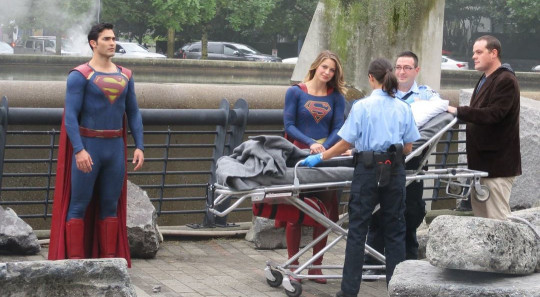
Even though Supergirl was a valuable asset to CBS in its bid to win back younger viewers, as we now know, after only one season the show switched to become a CW show anyway. Many assume that falling ratings had resulted in a cancellation, but seemingly this was not the case.
While the show had indeed dropped in the ratings, that drop was relative to an exceptionally high opening, and apparently the Girl of Steel still had enough appeal to justify a second season at CBS.
Glenn Gellar, CBS President of Entertainment at the time, commented on the show at the 2016 Television Critics Association press tour, as reported by Slash Film:
“I didn’t say Supergirl didn’t work for us. It actually worked very well. It averaged over 10 million viewers a week. But at the end of the day, we really looked at the situation. We said, ‘How can we both win from this?’ We co-own The CW so this was an opportunity for both CBS and Warner Bros. to really benefit from the success of the show. They produce it. We co-own the network and there’s nothing to say that if we hadn’t made the right deal with the CW that we wouldn’t have taken it back on Monday nights or another time.”

Additionally Leslie Moonves, who was head of CBS at the time, also commented on the show’s network change at a press event, as reported by Deadline:
“If they didn’t go there, we would’ve probably taken it back,” Moonves said.
And, as if to reinforce Moonves’ comments, the same Deadline piece also contains further commentary from Glenn Gellar:
“It’s a win-win since we co-own the CW,” he said. “We worked out great deal. And who would say we wouldn’t have picked it up had it not gone to the CW.”
The Deadline piece then goes on to explain why the drop in ratings was not necessarily a killer blow for the fledgling superheroine show:
Despite the fact that its numbers tapered off significantly after a strong start, Supergirl, aided by a solid DVR play, averaged a 2.4 rating among adults 18-49 in a competitive time slot, ranking as the No. 1 new CBS drama and No. 4 new network series overall (behind only Blindspot, Life In Pieces and Quantico) in the demo this season. It is CBS’ youngest-skewing new drama and averaged nearly 10 million viewers.

These details show that Supergirl still had a valid appeal for CBS, and therefore a real possibility of a second season. But Warner Bros. decided to move the series to The CW rather than await a CBS renewal/cancellation decision. This begs the obvious question: why didn’t WB fight to keep the show on the higher rated network?
The answer to that most likely lies in understanding how each company profits from Supergirl -- specifically the different motivations driving both CBS and Warner Bros., and the outside factors that influenced their decisions.
Okay, so why did Supergirl jump network?
The first thing we have to understand is that there was a difference in priorities between Warner Bros., the producer, and CBS, the broadcaster.
WB ultimately made and owned the Supergirl show (via Berlanti Productions), and therefore had direct benefits from future sales to streaming services, syndication, foreign broadcasters, merchandising, DVD and Blu-ray sales, and so forth. From WB’s point of view, success for a show like Supergirl is generating enough episodes and enough brand recognition to make the series attractive for as many of those second-run markets as possible, for as many years into the future as possible.

A key to this success is the so-called 100 episode rule, which is the most appealing minimum episode count for these future markets. The 100 episode figure was historically based on packaging sufficient episodes for a show to be screened daily in daytime syndication without frequent repeats, although in recent times that desired target has dropped below 90 episodes.
Meanwhile CBS, as Supergirl’s broadcast network, had different priorities.
Without a direct financial stake in syndication, merchandising, box-sets, etc. CBS was limited to simply paying Warner Bros. a fee (a license) to screen the show, then reaping profits from advertising placed against each broadcast. And as advertising rates are based on the popularity of a show, audience ratings matter a lot. However high ratings alone are not the whole story. A network may want to attract a particular audience demographic who are more desirable to potential advertisers. So it is all about delivering the right kind of audience that advertisers are eager to reach.
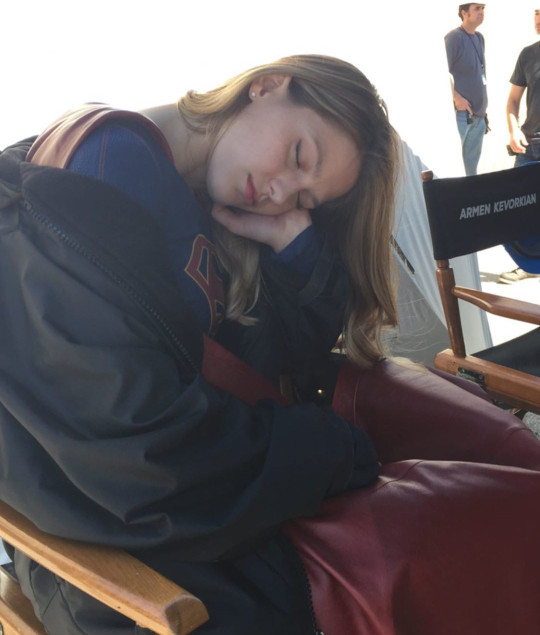
The second thing we need to understand is that tv productions, even in places like California, are subject to tax breaks from local government.
In recent decades locations like Vancouver in Canada have used currency exchange rates and aggressive tax incentives to lure tv productions away from Hollywood. When lower-budget cable television began to challenge the big networks in the 1980s and 90s, the monopoly that Los Angeles and New York enjoyed over television drama production started to vanish, as drama shows began using cheaper Canadian (and other) locations as stand-ins for America. By the time Supergirl was beginning production, even the mighty Los Angeles had been reduced to using tax incentives to tempt big productions into spending their lucrative budgets in and around the city.
Now that we understand the television landscape at the time, we are in a better position to consider specifically what actually happened to Supergirl.

Great, so why exactly did Supergirl jump network then?
First, a caveat: of course without being in the room when the decision was made, we can’t ever know for absolute certain what happened. But we can still piece together a very credible account of the likely motives behind the network switch using the aforementioned quotes from the parties involved plus some other public information.
One factor that was surely important was the bombshell news the show got around the time they wrapped on season one. Supergirl was a large television production that made major demands on things like costumes, props, sets, stunts, etc. With all those people being employed, the show’s producers must have felt that they had a strong case for a tax credit from the California Film Commission. But, if that was the case, then they were proved wrong.
At the end of its first year in Los Angeles, it was reported that Supergirl had failed to secure the all-important tax credit. At the time, Deadline covered it like so:
Supergirl was one of the biggest network shows to commit to filming in California in the past couple of years, so the expectation was that it would be among those awarded a tax credit by the California Film Commission, which changed its methodology to give rebates based on productions’ economic impact. But Supergirl‘s application was not approved, which likely affected the show’s budget projections.

Without the credit, Warner Bros. would be tasked with making a glossy show for a major network, but on a much tighter budget than season one. CBS was a major network that delivered a lot of brand prestige for Supergirl, but all of that would be worth little to Warner Bros. if the show was cancelled well before its syndication episode quota. Assuming CBS green lit a second season, if budget cuts resulted in lower quality, and even lower ratings, then the show may easily fail to get a third or a fourth year at CBS.
For WB, staying on CBS may have looked like too big a gamble going forward. Supergirl was likely to need to switch networks sooner or later to fulfil its quota, and that switch of network would also require a switch of shooting locations to Vancouver (where production would be much cheaper and incentives easier.) So WB presumably thought better that it be sooner, while the series still had a solid reputation and fair ratings.
But why would the shift to The CW help? Wouldn’t the move just postpone the inevitable, if ratings continued to slide?

To understand why this is not necessarily the case, we need to consider the relationship Warner Bros. has with The CW, and why it doesn’t care so much about ratings on that network.
When a network screens a show from a studio, it pays a license to the studio for the privilege. But when said network and studio are part of the same parent corporation, then that license is effectively redundant, as it would amount to just moving money around inside a single organisation. This creates an interesting relationship between the studio and the network, the upshot of which is that the network no longer has to focus quite so much on ratings.
A 2016 article by Forbes described how Warner Bros. viewed The CW at that point in television history:
Unlike the big four of CBS, ABC, NBC and Fox, The CW is not a network trying to make money on a grand scale off its live viewership. Rather, it was created as a vessel for 1st-run domestic broadcast. Why is that important? Because without somewhere to air first, there’s no way for television studios to achieve the syndication friendly number of 88-episodes necessary for profitable 2nd-tier syndication deals. The CW is a network created with the singular goal of getting the shows of its parent company to syndication qualifying numbers. That’s why most of its programming still runs traditional 22-episode seasons and why there’s never been outside programming from the likes of 20th Century Fox, NBCUniversal and ABC Studios featured on it.
Warner Bros. considered The CW as a shop window -- a way to promote a show, build brand recognition, and rack up a portfolio of episodes, ready for when the real profits can be made later on. This perhaps explains why they took the Supergirl project to The CW in the first place, and it also explains why they quickly switched it to The CW after season one, when ratings and tax breaks conspired to threaten the desirable syndication friendly episode count if the show had stayed at CBS.
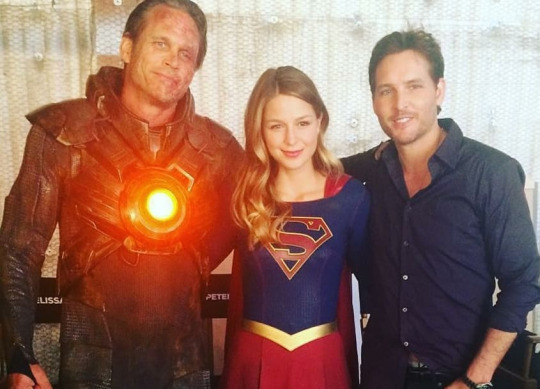
So, we can now pull together all the publicly available information, add just a tiny bit of educated guesswork, and arrive at the likely story behind why Supergirl leapt (in a single bound) from CBS to The CW. It probably went something like this...
Warner Bros. wanted to make a Supergirl show, but needed to get to sufficient episodes for a viable syndication package. The natural home for this would be The CW, but that network was at the time yet to launch its second Arrowverse show (The Flash), and was uncertain about how committed it wanted to be to the superhero genre. So WB went to CBS, knowing that the network needed something to attract a younger audience. This was a gamble, but if the show could work on CBS then WB would get its desired episode count plus stellar brand prestige thanks to the broadcaster’s larger profile. But the loss of the tax credit presumably shifted the odds.
Even though Supergirl’s ratings in desirable age groups had been reasonable enough to make renewal at CBS an option, the network’s economic model meant it would be sensitive to future drops in ratings. Meanwhile, at The CW, the success of The Flash season one had meant that the network was now more confident about superheroes. Looking at all of these factors, Warner Bros. presumably decided to play safe and pull the show from CBS, offering it to The CW, were it was far more likely to run for several seasons uninterrupted.

So there you go. Although ratings likely did play a small part, there were other important factors in play too. Notably the declined tax credit, and The CW’s hesitancy about taking on too many superhero shows at that time (which is ironic when you consider how deeply committed it later became to the genre.) But the important thing is that CBS never actually cancelled Supergirl, it appears -- the reporting at the time strongly suggests WB never even gave them the chance.
16 notes
·
View notes